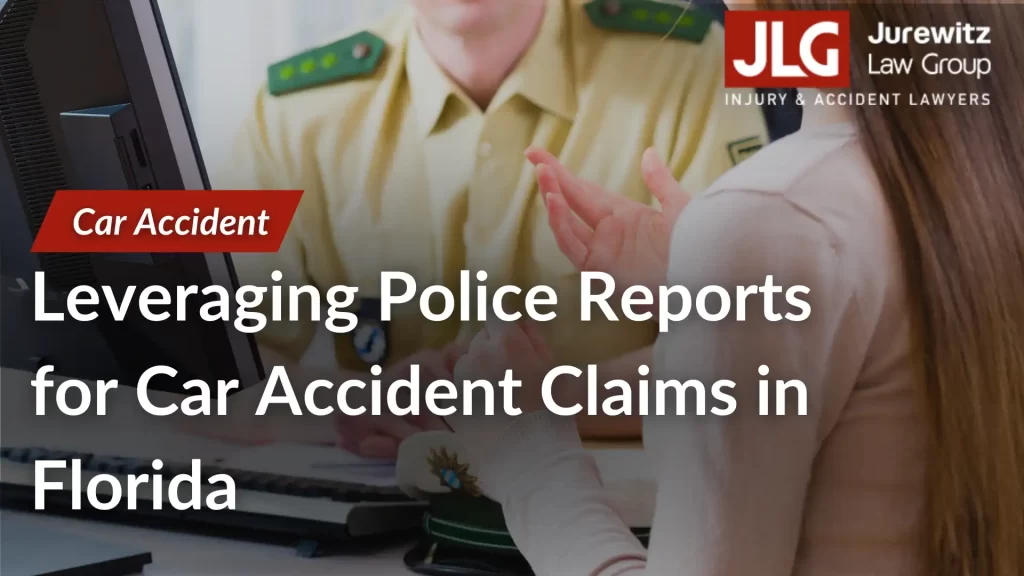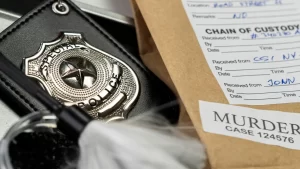
When you find yourself involved in a car accident in Florida, the immediate aftermath can feel overwhelming and confusing. Amidst the chaos, it is crucial to remember the importance of obtaining a police report, as this document can play a vital role in your insurance claim process. This post can help you answer questions such as “Do I need police report for insurance claim?” and other similar questions that you may have after a car accident.
Do I Need a Police Report for an Insurance Claim?
If you’re asking yourself “Do I need police report for insurance claim?”, you’re on the right track. While not all car accidents involve law enforcement, call the police if the accident causes injury, death, or significant property damage. In Florida, you must report an accident to the police if it results in injury, death, or property damage exceeding $500. Failing to report such an accident can lead to legal consequences and may complicate your insurance claim process.
It is important to note that police accident reports are inadmissible in Florida civil courts. As such, you may ask “Do I need police report for insurance claim?” if it would only end up unused in court. However, having a police report can provide valuable evidence to support your claim even if the accident seems minor. Insurance companies often rely on police reports to determine liability and assess the extent of damages. With a police report, proving your case and securing fair compensation for your losses may be more accessible.
What is Included in a Police Report?
What information do I need police report for insurance claim? A police report is an official document that provides a detailed account of the car accident. When the police arrive at the scene, they will investigate the incident and gather information from all parties involved. The report will typically include the following information:
- Date, time, and location of the accident — The report specifies the exact date, time, and location where the accident occurred. This provides a clear timeline of events.
- Details of the vehicles involved — The report includes the make, model, year, and license plate numbers of all vehicles involved.
- Insurance and contact information — The report will list the names, addresses, phone numbers, and insurance information of all parties involved.
- Statements from drivers, passengers, and witnesses — The police will interview all parties involved and record their accounts of the accident. They may also include statements from witnesses who saw the accident occur.
- Description of the accident — The report will provide a detailed narrative based on the information gathered at the scene.
- Diagrams of the accident scene — In some cases, the police may include diagrams or sketches of the accident scene. This helps visualize the position of the vehicles and the sequence of events.
- Citations and violations — If the police determine that any driver violated traffic laws or received citations, this information will be included.
- Injuries and property damage — The report documents any visible injuries to the parties involved and describes the extent of vehicle damage.
How Do Police Investigate a Car Accident?
When the police arrive at the scene of a car crash, they follow a standard procedure to investigate the incident and gather the necessary information for the report. The investigation process typically involves the following steps:
- Secure the scene — The police will ensure the accident scene is safe and secure, redirect traffic if necessary, and check for immediate hazards.
- Assess injuries — Officers will check on all parties’ well-being and call for medical assistance if needed.
- Interview participants and witnesses — The police will speak with all drivers, passengers, and witnesses to obtain their accounts of the accident. They will ask questions about how the accident occurred, who was at fault, and any other relevant details.
- Examine vehicles and property damage — Officers will inspect the vehicles involved to assess the extent of damage and look for any physical evidence that may help determine the cause of the accident.
- Measure and diagram the scene — In some cases, the police may measure the accident scene and create diagrams to help reconstruct the events leading up to the collision.
- Check for violations and issue citations — The police will determine if any traffic laws were violated and issue citations to the responsible parties.
- Complete the police report — Based on the information gathered during the investigation, the officer will complete the official police report, which will be available to all parties involved.
Obtaining a Copy of the Police Report
Do I need police report for insurance claim? In most cases, you do. To leverage the police report for your car accident claim, you will need to obtain a copy of the report. In Florida, you can request a copy of the police report through the law enforcement agency that responded to the accident. The process may vary slightly depending on the agency, but an accident victim can:
- Contact the law enforcement agency — Contact the police department or sheriff’s office handling your accident. You can request information on obtaining a report copy.
- Submit a request form — Many agencies have online request forms or downloadable applications to complete and submit to request your copy.
- Pay any required fees — A small fee may be charged for obtaining a copy, which can vary by agency.
- Receive the report — Once your request is processed, you will receive a copy of the police report. This will be sent either electronically or by mail.
It is essential to review the police report carefully to ensure all the information is accurate and complete. If you notice any errors or discrepancies, contact the law enforcement agency to request an amendment to the report.
The Role of Police Reports in Determining Liability
 Police reports serve as valuable evidence in determining liability for a car accident. While the police do not have the final say in who is at fault, their report can provide crucial information. This information helps insurance companies and legal teams assess responsibility.
Police reports serve as valuable evidence in determining liability for a car accident. While the police do not have the final say in who is at fault, their report can provide crucial information. This information helps insurance companies and legal teams assess responsibility.
The police report may include the officer’s opinion on who caused the accident based on the gathered evidence. This opinion and the factual details provided in the report can help support your claim and demonstrate the other party’s negligence.
It is essential to note, however, that police reports are only sometimes conclusive. In some cases, the report may contain inaccuracies or incomplete information. Suppose you believe that the police report does not accurately represent the events of the accident. In these cases, do I need police report for insurance claim? Yes, but you may need to gather additional evidence to support your claim, such as witness statements, medical bills and records, and expert opinions.
Protecting Your Rights after a Car Accident in Florida
Do I need police report for insurance claim? At Jurewitz Law Group Injury & Accident Lawyers, our dedicated team of Tampa car accident attorneys has the knowledge and skills to guide you through every step of your claim. Our law firm understands the importance of police reports in supporting your case and will work tirelessly to gather the evidence needed to demonstrate the other party’s liability.
If you or a loved one has been involved in a car accident in Florida, seek legal help to filing a claim. Contact Jurewitz Law Group Injury & Accident Lawyers today at (619) 233-5020 to schedule a free, no-obligation consultation with one of our skilled personal injury lawyers. Let our team of lawyers fight for your rights and help you secure the compensation you deserve.
Related Posts:
Legal Timelines for Suing After an Accident in Florida


